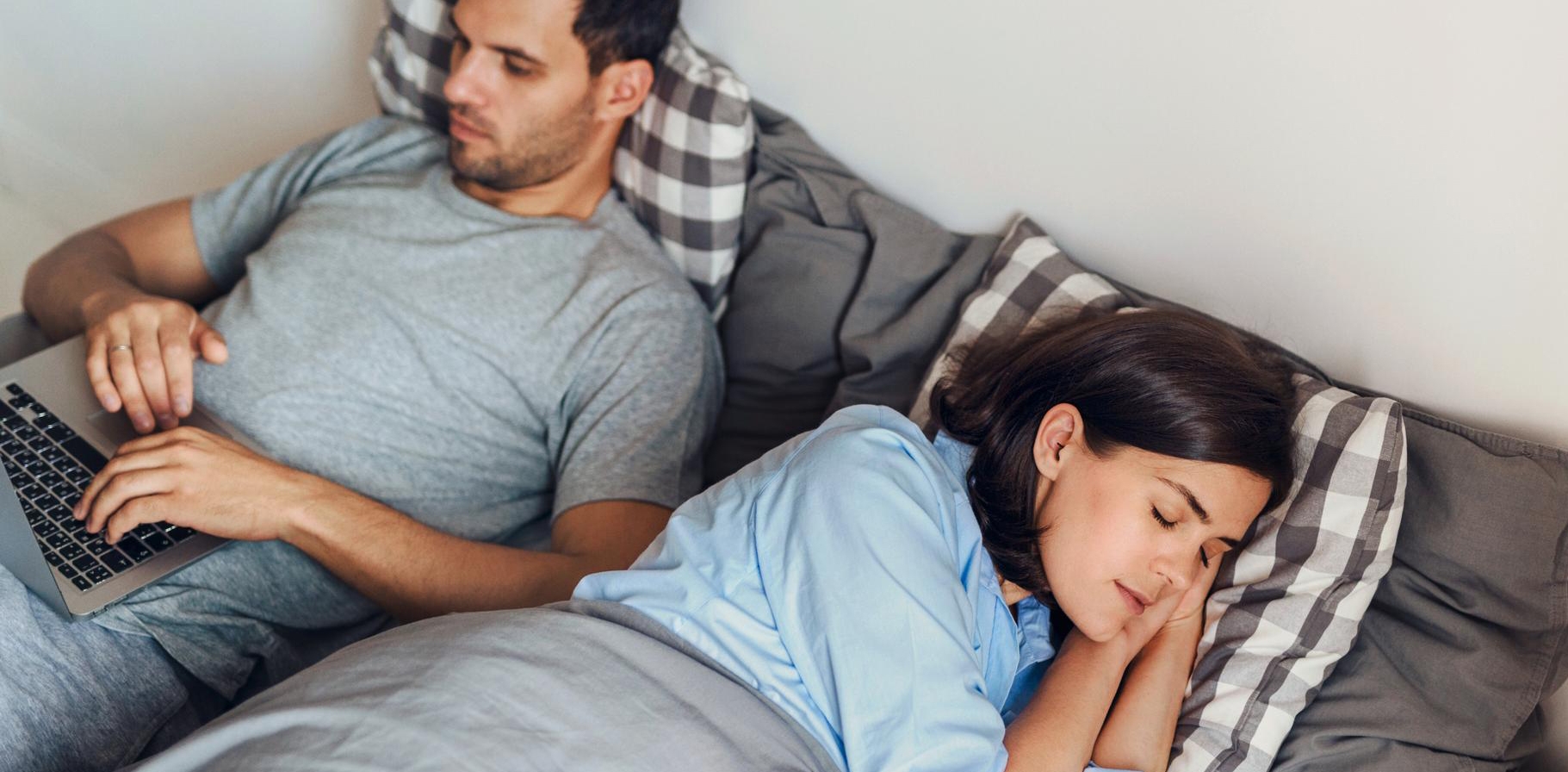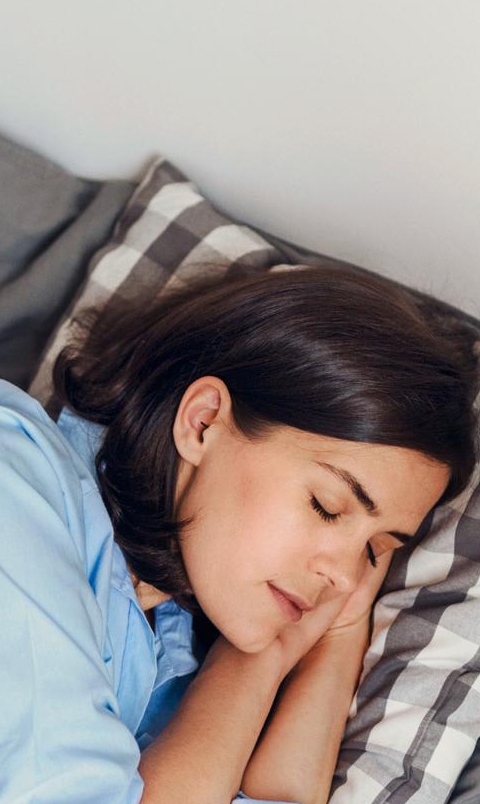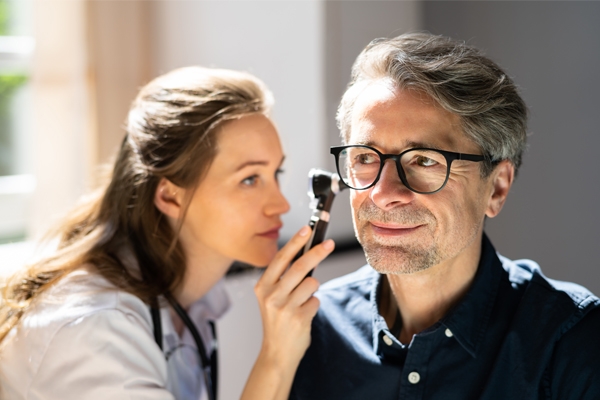Learn How Sleeping With Noise Impacts Your Sleep Cycle


Learn How Sleeping With Noise Impacts Your Sleep Cycle
5 min
Published January 7, 2025
How Sleeping With Noise Impacts Your Sleep Cycle
More than half of Americans fall asleep with the TV on at night, but are you aware that noise can affect your natural sleep cycle? Those who sleep with noise regularly could impact their health in ways they don't realize. Sleeping with sound has been linked to various health conditions, including insomnia, high blood pressure, and poor heart rate.
Below, the hearing experts at AudioNova explain how noise impacts the sleep cycle and what you can do to ensure you’re maintaining a healthy sound environment when sleeping. We’re here to help answer any questions you have or provide further information about maintaining excellent hearing health. Reach out to our clinical teams today to learn more.
How Does Noise Impact Sleep?
There are four stages of sleep. In stages one and two, the lighter phases of sleep, noise is more likely to interrupt your sleep cycle. When you reach stages three and four, the deeper stages of sleep, your sleep cycle is less likely to be interrupted. The brain continues registering external sounds, even when you're not awake. A person who wakes up several times throughout the night will feel less rested than someone whose sleep is uninterrupted. However, external sounds can impact your heart rate and blood pressure during sleep, hurting your sleep cycle.
Some sounds, such as a crying baby, are more likely to wake a person because they’re emotionally charged. Sleeping with the television on is considered a poor sleep hygiene practice because many of the sounds are emotionally straining, causing a person to feel restless throughout the night and more tired in the morning.
Listening to White Noise While Sleeping
When it comes to sleeping, not all noise is the same. White noise can be an excellent way to reduce the impact of loud or harsh sounds, such as sirens or traffic, and help you sleep more peacefully at night. White noise is also used by hearing care professionals for tinnitus treatment. Certain sounds can be soothing while masking other more bothersome sounds.
The most effective sounds differ from person to person, and an audiologist is an excellent resource for finding a suitable white noise machine to use. It’s important to use white noise that maintains an even tone and volume and is loud enough to cover other external sounds. Some examples of sound that can help you achieve more peaceful sleep include the following:
- White Noise: When you layer multiple sound frequencies on top of one another, you create white noise. White noise machines and generators are available, but there are also several white noise apps you can conveniently download. Be sure to discuss any use of white noise with your audiologist to ensure you’re not causing further hearing loss.
- Listen to Soft Music: Calming or soothing music can help some people fall asleep faster.
- Turn on a Fan or Air Conditioner: These devices produce constant ambient noise that can mask other annoying environmental sounds in the background.
- Nature Sounds: If you're feeling restless, sounds such as ocean waves or a thunderstorm may help you fall asleep.
It’s important to remember that exposure to loud sounds can contribute to signs of hearing loss. Our hearing experts always recommend hearing protection when significant noise exposure is possible.
Minimizing Noise for Healthy Sleep
If you sleep in a noisy environment or urban area, it might not be possible to cancel out all sounds while you sleep. You might start with a white noise machine, fan, or air purifier. If those don't work, investing in earplugs is another option. Covering floors with rugs to reduce echoes and using thick curtains or drapes can also help drown out external sound.
Exposure to traffic sounds, sirens, airplanes, neighbors, cats fighting, or dogs barking is common, especially when you live in a city. However, the following tips can help you limit your exposure to such sounds and create a healthier sleeping environment:
- If outside noise penetrates your bedroom and disturbs your sleep, you can install soundproof windows or seal gaps in your windows with various insulation methods.
- Put all your electronic devices on silent so the notifications don’t interrupt your sleep at night.
- Sound waves reverberate on hard surfaces and are absorbed by soft ones. To lessen noise from outside, consider adding rugs or thick curtains to your bedroom.
- If abnormal or loud sounds are coming from any appliances, it may be worth having them repaired to ensure you rest well.
- If you can’t soundproof the room you sleep in, you can use over-the-counter ear plugs or custom hearing protection to reduce perceived noise levels and help you sleep well.
- If other people are disturbing your sleep, communicate with them so all residents in your home can achieve a good night’s rest.
How Noise Can Negatively Impact Sleep
If noise keeps you up at night and you’re unable to get proper sleep, it can have adverse effects mentally and physically. Prolonged exposure to too much noise during sleep can lead to:
Weight gain
Mood fluctuations
High blood pressure
Heart disease and stroke
Certain types of cancer
Type 2 diabetes
Development of sleep disorders
Less energy throughout the day
Increased use of sleep medicines
Decreased overall physical, mental, and emotional health
Take Charge of Your Hearing Health Today
At AudioNova, we understand how frustrating it is to lose sleep over loud noises. Whether a dog is barking in the apartment above you, or you live near an airport, we can help put your worries over a lack of sleep to rest. After all, our hearing experts and ear specialists are always available to answer your questions and alleviate your concerns. Contact us today to learn more about being fitted for custom hearing protection or schedule a one-on-one consultation with a provider. We look forward to hearing from you.




